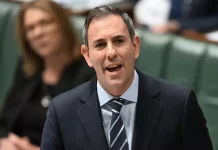Managing the civil service wage bill is becoming a massive challenge for Fiji.
The World Bank’s Fiji Public Expenditure Report 2023 states this is despite the recent reduction in costs.
It says that unwinding some of the recent measures to contain the wage bill, such as returning the Fiji National Provident Fund contribution rate to the pre-pandemic level will raise costs and others are not sustainable in the medium term.
About 30 percent of Fiji’s annual budget is allocated to public sector personnel, including spending on public sector wages, salaries, allowances, contributions to the FNPF pensions and gratuities.
The report noted that the wage bill grew in both nominal and real terms between 2016 and 2019, driven by a combination of growth in wage levels and an expansion in government employment.
The previous government is noted to have acted quickly to address fiscal pressures and contain the growth in the wage bill during the COVID pandemic.
Through hiring freezes, reductions in the contribution rate for the FNPF, a reduction in allowances and staffing reductions, personnel spending in 2021 fell by 8.8 percent compared to 2019 levels.
It says the government also needs to be careful on how it deals with the issues, as for example, a prolonged hiring freeze is likely to result in an unintended skill gap and reduce workforce motivation.
Given outcomes in the global economy, there will be increasing demand to adjust wages to account for changes in the cost of living.
Fiji does not have an agreed institutional framework for adjusting public sector base-pay, and this will put pressure on adopting less transparent mechanisms as a backdoor means to increase total remuneration.
The report adds that there is a possibility salaries top-up, such as allowances and performance pay are being funded by unfilled vacancies.
The warning is that keeping the wage bill on a sustainable growth path over the medium term without impacting service delivery will require civil servants to become more productive and achieve more with the same resources.
The high proportion of essential workers in the civil service highlights the need for a targeted and strategic response to fiscal challenges to contain the wage bill and minimize the impact on service delivery.
Assessing pay and employment practices will be critical to taking informed decisions on these issues and will also require better data collection mechanisms and systems.















